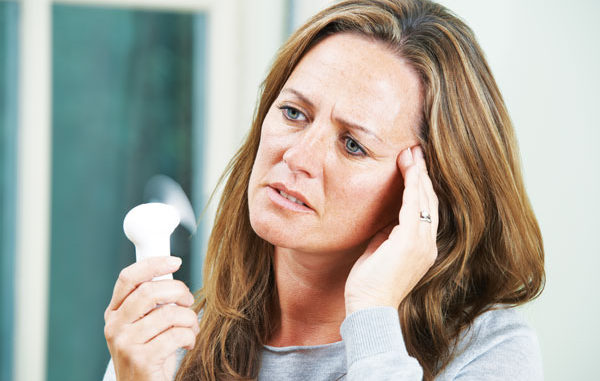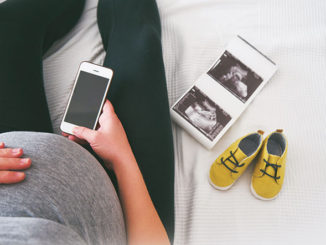
So, it’s started. You’re experiencing hot flashes, you’re tired all the time, your breasts are tender and you’ve likely felt at least one of several other uncomfortable symptoms, including decreased libido, irregular periods, urine leakage, and vaginal dryness. It’s called perimenopause and it’s the precursor to menopause.
Though menopause typically strikes around age 50, perimenopause starts two to ten years prior and comes with an onslaught of symptoms. From there, menopause occurs. Many of the symptoms are the same, but those private summers bring a few new ones, as well.
Luckily, relief exists.
“Menopause can cause many uncomfortable symptoms, but working closely with your doctor can help treat those symptoms so you can stay active and strong,” says Dr. Anita Heart, a family practice physician with Dignity Health Medical Group Stockton.
Many women who experience menopause report difficulty sleeping, mood changes, and osteoporosis as side effects. While 45 to 55 is the average age for menopause to begin, early menopause can start in a woman’s 30s. Other women won’t experience menopause until age 60. Genetics may play a role. While early menopause can be caused by premature ovarian failure, damage to the ovaries by chemotherapy and/or radiation treatments, or surgical removal of the ovaries, if there isn’t a clear reason for it, you can likely blame genetics. Studies show that the age your mother began menopause may be the best indicator as to when you, too, will begin.
In an effort to be cute, many people refer to menopause as “the change,” but there’s nothing cute about it. Instead of groaning and moaning about the side effects, take action.
Simple changes to diet can make a big difference. Optimal nutrition reduces side effects, herbal remedies such as adaptogens balance hormones, and exercise reduces fat while also keeping estrogen and progesterone ratios in good range. Reducing stress and remaining cognizant of your emotions and their effect on the body can also help.
With no cure for menopause, symptomatic relief is the goal. Vaginal dryness is treated with topical lubricants or estrogens. Medications can reduce the severity and frequency of hot flashes and in special circumstances oral hormone therapy may be prescribed. Relaxation techniques such as meditation are good for mood and stress-management, dietary supplements boost overall health, and sleep aids can be used to combat insomnia.
“There are many ways to manage symptoms if you are experiencing any,” Dr. Anita Heart says. “Talk to your doctor about simple lifestyle changes that may help your symptoms, and also know that some symptoms may go away on their own.”




